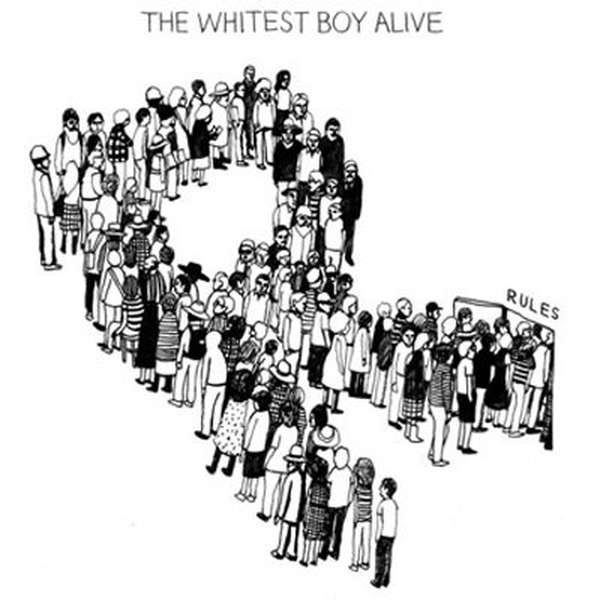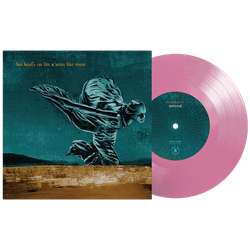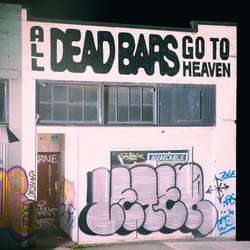Even though Rules is the second full-length from Erlend Øye, I still have a hard time disassociating his airy voice from prior folk duo, Kings of Convenience, Øye's Belle-and-Sebastian-esque alma mater. However, the more I listen to the Berlin-based The Whitest Boy Alive, the more I can appreciate Øye singing similar, heartbreak lyrics over a funky bass line rather than an acoustic arpeggio.
Unlike The Whitest Boy Alive's debut album Dreams, this release is much more mellow, slow tempo, and all with a lot less notes. The result? The listener is treated to equal parts of their line-up of vocals, guitar, bass, drums, and synthesizer. What I really enjoy about the album is that none of the instruments overpower each other. They're truly complimentary, and allow for melodies other than the guitar's to shine. Honestly though, I love the bass in this album. I can only describe The Whitest Boy Alive's minimalist pop sound as a unified and efficient one that only takes a few notes to get your head bobbing. Oh, and it's also really damn funky.
Contrary to popular practice, Rules starts with a slow one, "Keep a Secret", that showcases how The Whitest Boy Alive makes music without excess or frills. As you listen to the guitars and bass, you'll find yourself making comparisons to the melodies of The Rapture or Daft Punk. Fair enough, but you can throw that all out the window when the song ends and "Intentions" begins. With the old school tone of the synthesizer and lax bass line, it's got a throwback charm with a chill out feel. It gets a little more upbeat when "Courage" follows up with its driving hi-hats and syncopated synth. My favorite song from the album is "Gravity", particularly because Øye's lyricism goes so well with the bass and guitar parts. Although there are sprinkles of upbeat dance-pop elements, the majority of the album doesn't deviate very far from the lounge feel. Seriously, you could bump this at a coffee shop and get some feet tapping.
Don't think that just because The Whitest Boy Alive is more pop than folk that it compromises its lyrics. Øye's lyricism hasn't dulled with his graduation from Kings of Convenience, and he can still educate on the pains of unrequited love and solitude. On "1517" he sings:
As it happiness exists in the world at a fixed amount / And if you feel up, somebody somewhere else feels down / Taking on responsibility knowing it will weigh you down / Freedom is a possibility only if you're able to say no.
Øye's songs have always contained little nuggets of insight, and the album certainly has many (that is, if you're just as preoccupied with matters of the heart as I am).
It's hard to find something bad to say about this album. I think I've pushed myself to nitpicking when I say that I would have liked more than just the standard quartet of instruments they have here. Sure, the album is solid and straightforward musically, but it doesn't push any boundaries or experiment with the genre. On top of that, I do love the drums, but why does it feel like every rhythm is so centered on abusing the hi-hat? Also seeing that Øye has worked with so many other artists, there could have been some guest vocalists to highlight the songs. C'mon Øye, don't you think Feist would have been perfect on the final song, Island?
Like The Whitest Boy Alive's other pop contemporaries, they have songs that cater to the dance-oriented, but layered upon them is a mellowness that isn't overtly taken apart by spastic synth or excessive electronic noises (still, there's a part of me that would have welcomed that too.) It's a good balance in an alternative music world filled with bands that get club play, get remixed, and then get discarded only months after they've been bled dry. If The Whitest Boy Alive keeps their wits about them, they'll be able to evade this and continue to improve their sound.



